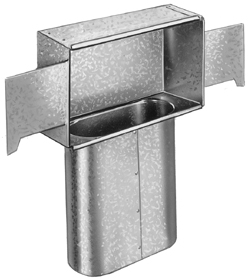
Ductwork, the system of ducts that moves air throughout your home, is a major factor in determining how well or how poorly your HVAC system is utilizing energy. On average, ductwork in homes loses about 20% of its heating and cooling energy to poor connections, leaks, and other damage. An additional amount of energy can be lost through thin duct walls in unconditioned areas, where the energy can simply be conducted into the surrounding area and out of the system.
So how is your duct system doing? Here are some signs to look for in determining whether your HVAC system is experiencing undue stress due to lost energy:
- Uneven temperatures in different rooms of your house
- Uneven air pressure at different points in your system (detected by your air-supply registers)
- The presence of completely uninsulated, naked ducts in unconditioned areas of your house (you’ll typically find these in the basement, attic, garage, or crawlspace)
- Strange noises like rattling, banging, and clattering that emanate from your ducts
- High utility bills – suspiciously higher than they should be!
R.S. Andrews specializes in helping homeowners optimize their heating and cooling systems, and maximize their savings on energy costs. Here are the things we’ll look at in order to make sure your system is up-to-snuff:
Size of rooms vs. size of ducts: an R.S. Andrews HVAC expert can conduct a room-by-room assessment of your home to determine heat gain and loss, taking into account the size of your HVAC system and the size of individual ducts.
Duct layout: the design of your ductwork should be utilizing the shortest possible distances between air handlers and air-supply registers. R.S. Andrews will ensure that your duct returns utilize short distances and that duct returns are located on each level of your home that includes living spaces.
Duct sealing: if your ducts are rattling, it’s often an indication of loose connections and poor sealing. R.S. Andrews will make sure that all duct joints are sealed properly so that they are completely air-tight and aren’t wasting any heating or cooling energy.
Duct insulation: ideally all ductwork should be insulated, but it’s especially important to insulate ducts in unconditioned areas of your home. R.S. Andrews can evaluate the state of your ductwork’s insulation and install any additional insulation necessary to optimize energy usage in your HVAC system.
Air circulation in your ductwork: a good balance of air pressure and air circulation is crucial for optimal functioning of your HVAC equipment. An R.S. Andrews HVAC technician can help ensure that your system avoids obstructions, like closed doors and blocked registers, and install grille transfers and jumper ducts if needed. You might also want to consider a duct cleaning if you see any evidence of mold or insects in your ducts, and of course, you should always check your air filters regularly and have them changed when needed.
Call R.S. Andrews today if you suspect that your ductwork is not performing as it should. Our expert HVAC technicians can evaluate your system to determine if any of the above issues are present, and perform quick, excellent-quality work to resolve them if necessary. Get your duct work checked out today – you may see substantial savings in heating and cooling costs right away!

